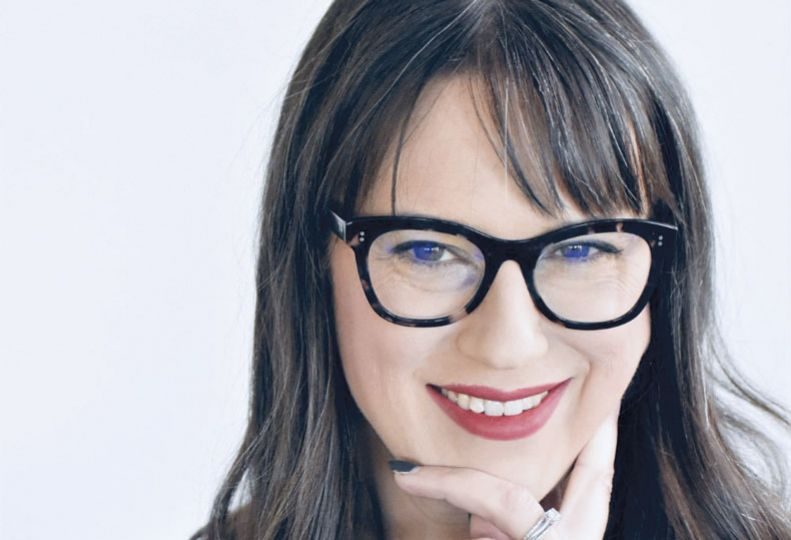Meet & Greet with HSSA's Erin Williams Hueter
~

At the start of the year, Erin Williams Hueter began her duties as the new executive director of the Health Sciences and Services Authority of Spokane County, taking over for the organization’s founding director, Susan Ashe.
HSSA was established in 2007 to provide funds to the life and health sciences research industry to help discover and advance new methods to combat diseases and promote public health in Spokane. Since its founding, it has helped create over 500 jobs and $100 million in economic activity, according to the organization’s website. The organization is funded through a Spokane County sales tax levy of 0.02%. Its operating budget for 2023 is $2.9 million. Hueter is its sole employee.
A lifelong Spokanite, Hueter, 46, has more than 20 years of experience in social work through her employment and leadership at Spokane-based Lutheran Community Services Northwest, a nonprofit that collaborates with community partners to offer social services. She holds a bachelor’s degree in social work from Pacific University, a liberal arts college in Forest Grove, Oregon.
The Journal recently caught up with Hueter to discuss the work of HSSA and what she hopes to bring to the organization during her tenure.
What prompted you to want to switch industries from a career in social work to health sciences?
I worked at Lutheran Community Services Northwest for almost 22 years, and I love the work there, the people, and the mission. The more I got engaged in leadership opportunities at Lutheran, the more I started to meet all kinds of different professionals, and it opened up my view of the different ways people make an impact and difference in the community.
I participated in Leadership Spokane during the all-remote pandemic year in 2021 and discovered that there are all kinds of people from other fields who care about people and want to make Spokane great. That has been my motivation all along—making Spokane the very best place it can be.
When I learned that Susan Ashe was retiring, it just seemed like such an incredible opportunity not only to be involved in the work of someone I admire, but also to challenge myself to learn something new—to be a newbie again. As a social worker, I like to meet new people and learn what’s important to them and how to help them. That is a lot of what this job is, helping people figure out how we can help them be successful.
What challenges do you anticipate?
When I was preparing for my interview, I was really inspired to see all the work that HSSA has been a part of—helping grow the University District and helping bring health sciences schools to this area. Having an incredible founding executive director retire is a big transition for the organization and a chance to look at things through a new lens.
I’m still in that assessment phase. I want to get to know our entrepreneur community, particularly in the life sciences. I want to speak with the leaders, CEOs, and the founders of organizations that HSSA has funded thus far and find out how they came to Spokane, how they came to HSSA, and how it’s been helpful and how it can do more.
Can you speak of the impact of HSSA?
Spokane, because of its size, its makeup of community, and strong health care and university systems, is uniquely poised to help grow our economic system through life sciences. There is such a wonderful opportunity for higher paying jobs at every skill level, from manufacturing to CEO and everywhere in between. I look at my own family and young adult children and how they are entering the workforce. It’s exciting to see there might be some life-changing opportunities if we invest more in life sciences and the differences they can make in the economy by both retaining people here and attracting people to Spokane. I am also getting to know the access-to-care programs that HSSA has funded in the past. I’m meeting board members and stakeholders and finding out what can be.
The first phase is to prepare a new strategic plan. HSSA had a very ambitious strategic plan when it was founded, and it has adapted it over time, but I think it’s time to take a second look at it and think about what our goals are going to be for this next phase. Greater Spokane Incorporated is funding a life-sciences ecosystem study in the region. It will be interesting to get information from that and learn about what assets the community has for life sciences and what the areas to grow are.
How do you plan to continue Susan Ashe’s legacy?
Susan has a ton of ongoing work that will continue. The life-sciences ecosystem study is something she worked closely with a lot of industry associations and boards. I hope to keep her work alive and the work of our past board members alive, as well as all our funded projects.
I just want to mention how impressive Susan’s legacy is and all the work that she has done. It’s exciting to be a part of that. It’s important to protect her legacy and all the work that she did. It is wonderful.
I’ll have to do it differently, because I am a different person bringing a different set of skills to the table. But I do love to bring people together, and I’m excited for the future. I can’t wait to see what we can do with a different perspective.
This interview has been edited for length and clarity.
Related Articles





